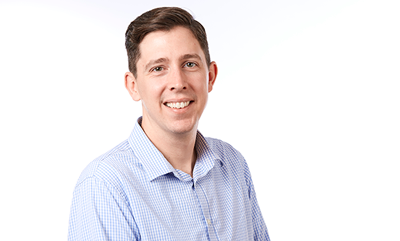Faculty Spotlight: Lawrence Long.
Collaborative work is key to developing sustainable public health solutions and improving population health outcomes. This weekly series spotlights one SPH faculty member who advances public health through collaborations within the field and across sectors.

Can you describe your research and work with USAID in South Africa?
I am fascinated by the challenge of thinking through the “how” of health care policy implementation, in particular trying to ensure that policies are effective while taking into account local resource availability, the need to continually improve efficiency, and balancing competing demands of the same resources.
As a professor in the Department of Global Health, most of my work is based outside of the US, predominantly in South Africa. I am involved in a number of research projects under a large five-year USAID co-operative agreement called EVIDENCE (Evaluations to Inform Decisions using Economics and Epidemiology), which is based in South Africa. These projects include a discrete choice experiment to examine men’s preferences in accessing primary health care; an evaluation of private primary health care providers and their role in supporting HIV care and treatment; and a cost outcomes analysis of different models of HIV pre-exposure prophylaxis delivery.
I am also part of a three-country research program known as AMBIT (Alternative Models of ART Delivery–Optimizing the Benefits), which examines the role of differentiated service delivery models in expanding HIV care and treatment using routine data. For this project, I am focused on supporting research activities in Malawi. Most recently, I was part of a team that launched Indlela: Behavioural Insights for Better Health, a Gates-funded unit designed to build behavioral economics capacity in South Africa with an initial focus on HIV implementation.
What is most meaningful to you about your research on HIV?
As a South African starting my professional career just as the country was grappling with the reality of a growing HIV epidemic, it was inspiring to see how a collective of activists, civil society, healthcare workers and researchers pushed and supported the development of the government’s HIV response so that today the country has arguably one of the most robust HIV programs in the world. The most meaningful research has been that which has afforded me the opportunity to play a small role in the collective that brings about evidence-based policy change.
Can you talk about who you collaborate with in your work, and how those collaborations are critical to conducting your research?
I owe my entry into health economics and public health to a cross-country, inter-university collaboration between Boston University and the University of Witwatersrand in South Africa. This collaboration ultimately led to the development of the Health Economics and Epidemiology Research Office–a leading, multi-disciplinary South African research group with a local staff of approximately 80. These experiences have shaped my own collaborations. Most of the research teams I am part of are multi-disciplinary by design, which often means collaboration across departments or research institutions. It would be impossible for me to do any meaningful global health research without strong collaborations with local, in-country research teams. Apart from the technical skills these collaborations bring to the table, they are essential in ensuring that any research is relevant and appropriate to the local context. Finally, building strong collaborations with the likely end users of your research increases the likelihood that the final research will answer the right question. Over the years this has meant building collaborations with healthcare workers, policy makers, and civil society groups.
“Professor Long has been a long-term collaborator with the Department of Global Health since he joined Professor Sydney Rosen’s South African-based research team in 2005. Since joining the Department of Global Health in 2017, Lawrence has continued to broaden his collaborations, most recently with domestic and international colleagues to start a unit that will support behavioral economics capacity development in South Africa. I look forward to seeing what will be next.”
Patricia Hibberd, chair of the Department of Global Health